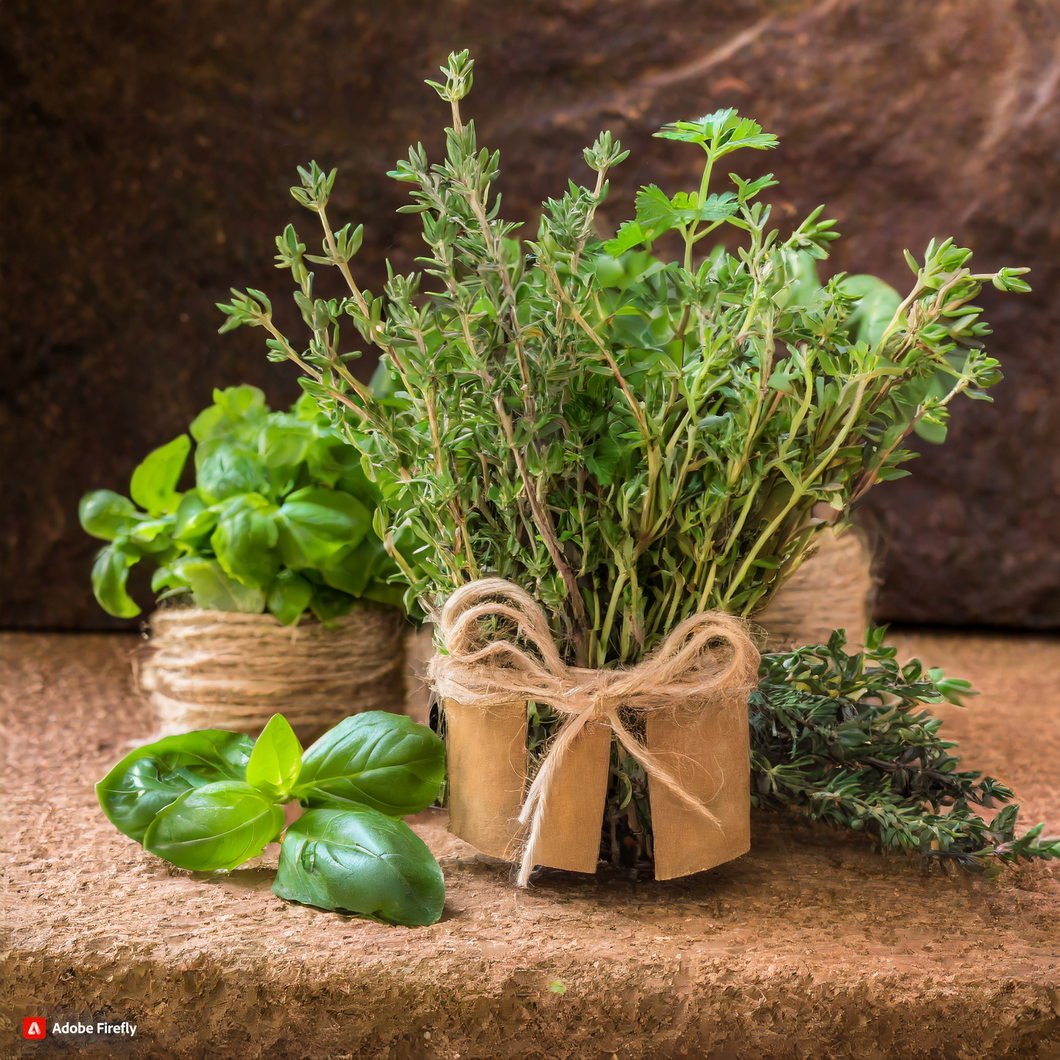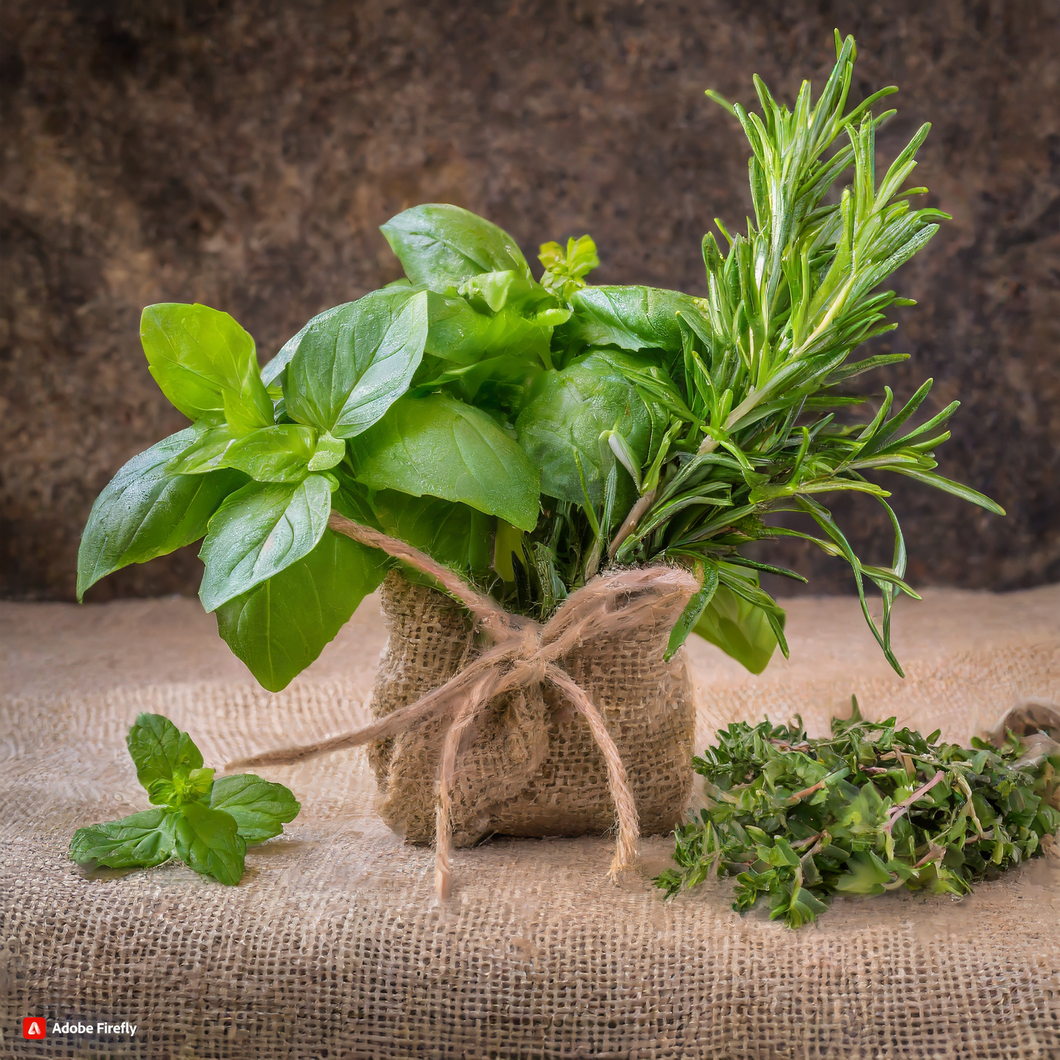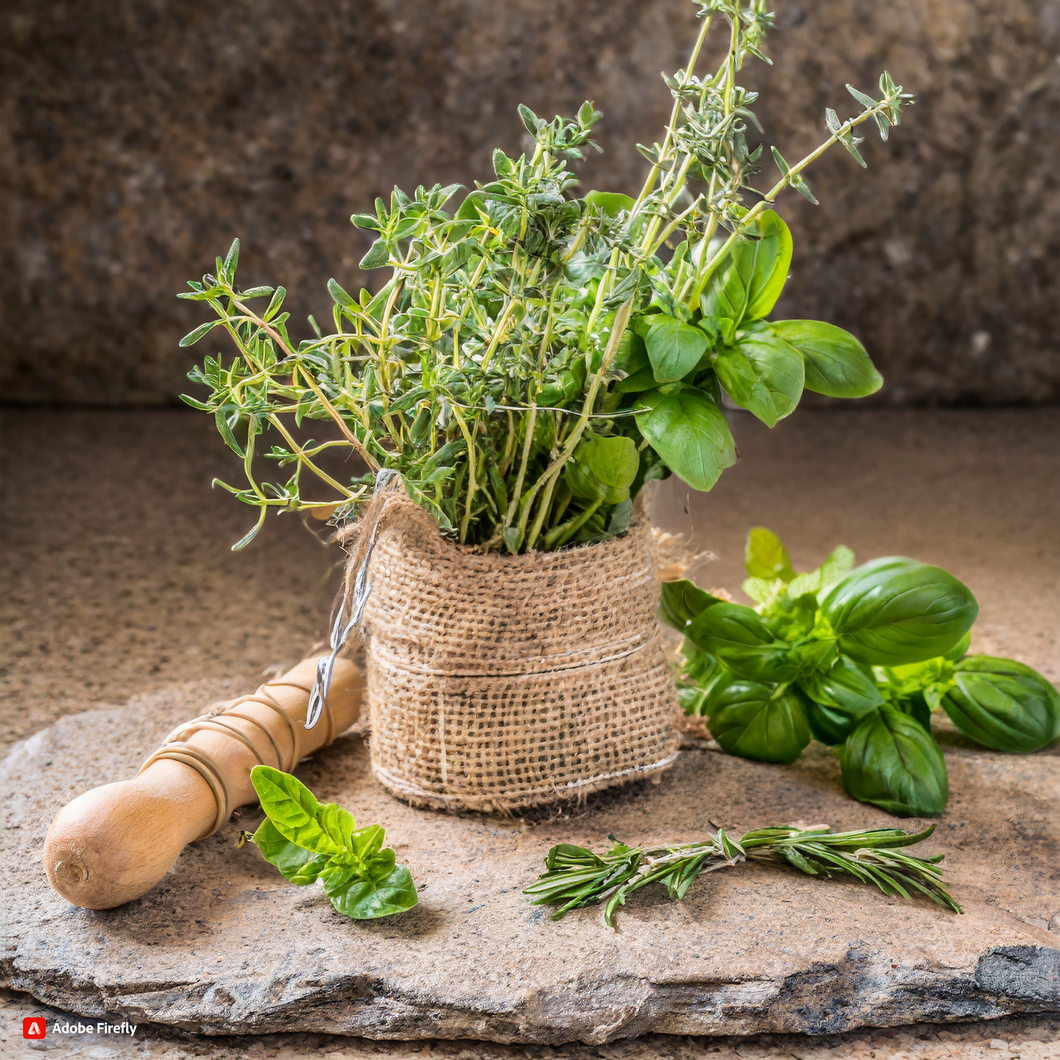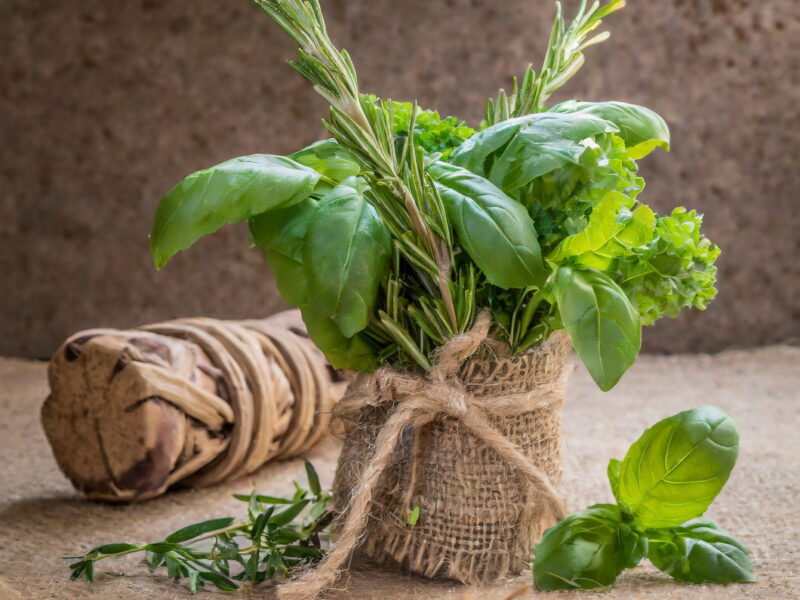Introduction
Fresh herbs play a crucial role in enhancing the flavor, aroma, and overall presentation of culinary delights. These natural ingredients are widely used in various cuisines around the world, adding a unique and refreshing touch to dishes. From adding a pop of color to providing a burst of flavor, fresh herbs are an essential element in creating delicious and visually appealing meals. In this article, we will explore the Role of Fresh Herbs in culinary delights and how they elevate the dining experience.
Enhancing Flavor: Fresh herbs play a crucial role in elevating the taste and aroma of culinary dishes. Their unique and distinct flavors add depth and complexity to a dish, making it more enjoyable and satisfying for the palate
When it comes to cooking, there are few ingredients that can enhance the flavor of a dish quite like fresh herbs. These small but mighty plants have been used in cooking for centuries, and for good reason. Not only do they add a burst of flavor, but they also bring a touch of freshness and vibrancy to any dish. In this article, we will explore the Role of Fresh Herbs in culinary delights and how they can take your cooking to the next level.
First and foremost, let’s talk about the flavor. Fresh herbs have a unique and distinct taste that cannot be replicated by any other ingredient. Each herb has its own flavor profile, from the earthy and pungent taste of rosemary to the bright and citrusy notes of cilantro. By incorporating these herbs into your dishes, you are adding layers of flavor that can elevate even the simplest of meals.

But it’s not just about the taste. Fresh herbs also bring a beautiful aroma to a dish. As soon as you chop or crush a fresh herb, its essential oils are released, filling the air with a delightful scent. This aroma not only adds to the overall sensory experience of eating but also helps to stimulate the appetite. Just think about the smell of fresh basil in a bowl of pasta or the scent of thyme in a hearty stew – it’s enough to make your mouth water.
One of the great things about fresh herbs is that they are incredibly versatile. They can be used in a variety of dishes, from soups and stews to salads and marinades. They can also be used in both savory and sweet dishes, adding a unique twist to traditional recipes. For example, a sprinkle of fresh mint in a fruit salad can take it from ordinary to extraordinary.
Not only do fresh herbs add flavor and aroma, but they also bring a pop of color to a dish. Adding a handful of chopped herbs to a dish can make it look more visually appealing and appetizing. This is especially true for dishes that are predominantly one color, such as a creamy pasta dish or a bowl of soup. The addition of fresh herbs can add a touch of green, red, or purple, making the dish more visually appealing.
Aside from their role in enhancing flavor, fresh herbs also have some health benefits. Many herbs are packed with antioxidants, vitamins, and minerals that can boost the nutritional value of a dish. For example, parsley is a great source of vitamin C, while basil is rich in vitamin K. By incorporating fresh herbs into your cooking, you are not only adding flavor but also adding a nutritional boost to your meals.
In addition to using fresh herbs in cooking, they can also be used as a garnish. A sprig of rosemary or a few leaves of basil can add a touch of elegance to a dish, making it look more sophisticated and restaurant-worthy. Plus, it’s a great way to use up any leftover herbs that you may have from a recipe.
In conclusion, fresh herbs play a crucial role in culinary delights. They add flavor, aroma, color, and even health benefits to dishes, making them an essential ingredient in any kitchen. So the next time you’re cooking, don’t forget to reach for those fresh herbs – your taste buds will thank you.
Nutritional Benefits: Apart from their flavor-enhancing properties, fresh herbs also offer a range of health benefits. They are packed with essential vitamins, minerals, and antioxidants, making them a nutritious addition to any dish. Incorporating fresh herbs in culinary delights can help boost the nutritional value of a meal
Fresh herbs are a staple in many cuisines around the world. From the fragrant basil in Italian dishes to the zesty cilantro in Mexican cuisine, these flavorful plants add a unique touch to any dish. But aside from their ability to enhance the taste of food, fresh herbs also offer a range of health benefits. In this article, we will explore the Role of Fresh Herbs in culinary delights and their nutritional benefits.

First and foremost, fresh herbs are packed with essential vitamins and minerals. For example, parsley is a great source of vitamin K, which is important for blood clotting and bone health. It also contains vitamin C, which helps boost the immune system and promotes healthy skin. Similarly, thyme is rich in vitamin A, which is essential for maintaining healthy vision and a strong immune system. By incorporating fresh herbs into your meals, you can easily increase your intake of these vital nutrients.
In addition to vitamins and minerals, fresh herbs are also rich in antioxidants. These powerful compounds help protect our cells from damage caused by free radicals, which are unstable molecules that can lead to chronic diseases. Some of the most potent antioxidants found in fresh herbs include carotenoids, flavonoids, and phenolic acids. These antioxidants not only help prevent diseases but also have anti-inflammatory properties, making them beneficial for overall health.
Moreover, fresh herbs are a great source of dietary fiber. Fiber is essential for maintaining a healthy digestive system and can also help lower cholesterol levels and regulate blood sugar. Herbs like rosemary and oregano are particularly high in fiber, making them a great addition to any meal. By incorporating fresh herbs into your diet, you can easily increase your fiber intake and reap its many health benefits.
Another advantage of using fresh herbs in culinary delights is their low-calorie content. Unlike many other flavor-enhancing ingredients like butter or oil, herbs add flavor without adding extra calories. This makes them a great option for those looking to maintain a healthy weight or reduce their calorie intake. Additionally, fresh herbs can help reduce the need for added salt in dishes, which is beneficial for those with high blood pressure or heart disease.
Aside from their nutritional benefits, fresh herbs also offer a range of medicinal properties. For centuries, herbs have been used in traditional medicine to treat various ailments. For example, ginger is known for its anti-inflammatory and anti-nausea properties, while garlic has been used to boost the immune system and lower blood pressure. By incorporating these herbs into your meals, you can not only add flavor but also reap their medicinal benefits.
In conclusion, fresh herbs play a crucial role in culinary delights. Not only do they enhance the taste of food, but they also offer a range of nutritional benefits. From essential vitamins and minerals to powerful antioxidants and medicinal properties, these flavorful plants are a nutritious addition to any dish. So next time you’re cooking, don’t forget to add a sprinkle of fresh herbs for a healthy and delicious meal.
Versatility in Cooking: Fresh herbs are incredibly versatile and can be used in a variety of dishes, from soups and stews to salads and marinades. They can be used as a garnish, added during cooking, or even infused in oils and vinegars. This versatility allows for endless possibilities in creating delicious and flavorful culinary delights
Fresh herbs are a staple in many kitchens, and for good reason. Not only do they add a burst of flavor to dishes, but they also bring a touch of freshness and vibrancy to any meal. But what exactly is the Role of Fresh Herbs in culinary delights? Let’s dive in and explore the versatility of these little green wonders.
First and foremost, fresh herbs are incredibly versatile. They can be used in a variety of dishes, from soups and stews to salads and marinades. This versatility allows for endless possibilities in creating delicious and flavorful culinary delights. Whether you’re a seasoned chef or a novice cook, fresh herbs are a must-have in your kitchen.

One of the most common ways to use fresh herbs is as a garnish. Adding a sprinkle of chopped herbs on top of a dish not only adds a pop of color but also enhances the overall flavor. For example, a sprinkle of fresh parsley on top of a bowl of creamy tomato soup can take it from ordinary to extraordinary. Similarly, a few leaves of fresh basil on a slice of pizza can elevate the taste to a whole new level.
But fresh herbs are not just limited to being a garnish. They can also be added during cooking to infuse their flavors into the dish. This is especially true for dishes that require a longer cooking time, such as stews and sauces. Adding fresh herbs like thyme, rosemary, or oregano to these dishes not only adds depth of flavor but also infuses the entire dish with their aroma.
Another way to use fresh herbs is by infusing them in oils and vinegars. This is a great way to preserve the herbs and use them in dishes that require a quick burst of flavor. Simply add a few sprigs of your favorite herbs to a bottle of olive oil or vinegar and let it sit for a few days. The result is a flavorful oil or vinegar that can be used in dressings, marinades, or even as a dipping sauce.
Fresh herbs also play a crucial role in creating marinades. Whether you’re marinating meat, fish, or vegetables, adding fresh herbs to the mix can take the flavor to a whole new level. For example, a simple marinade of olive oil, lemon juice, garlic, and fresh herbs like thyme and rosemary can transform a plain chicken breast into a mouthwatering dish.
But it’s not just savory dishes that benefit from the addition of fresh herbs. They can also be used in sweet dishes, such as desserts and drinks. For example, a sprig of fresh mint in a glass of lemonade or a few leaves of basil in a fruit salad can add a refreshing and unexpected twist to these dishes.
In addition to their versatility in cooking, fresh herbs also have numerous health benefits. They are packed with essential vitamins and minerals and are a great source of antioxidants. They also have anti-inflammatory properties and can aid in digestion. So not only do they make our dishes taste better, but they also contribute to our overall health and well-being.
In conclusion, the Role of Fresh Herbs in culinary delights is undeniable. Their versatility in cooking allows for endless possibilities in creating delicious and flavorful dishes. From being a garnish to infusing their flavors into oils and vinegars, fresh herbs add a touch of freshness and vibrancy to any meal. So next time you’re in the kitchen, don’t forget to reach for those little green wonders and let them work their magic in your dishes.
Q&A – Role of Fresh Herbs Culinary
1. What is the purpose of using fresh herbs in cooking?
Fresh herbs are used in cooking to add flavor, aroma, and visual appeal to dishes. They can enhance the overall taste and elevate the presentation of a dish.
2. How do fresh herbs differ from dried herbs in culinary preparations?
Fresh herbs have a more vibrant and intense flavor compared to dried herbs. They also have a higher water content, which can add moisture to dishes. Dried herbs, on the other hand, have a more concentrated flavor and are often used in dishes that require longer cooking times.
3. What are some common herbs used in culinary delights?
Some common herbs used in culinary preparations include basil, thyme, rosemary, parsley, cilantro, and mint. Each herb has its own unique flavor profile and can be used in a variety of dishes, from savory to sweet. Chefs often use a combination of herbs to create complex and delicious flavors in their dishes.
Conclusion for Role of Fresh Herbs Culinary
In conclusion for Role of Fresh Herbs Culinary, fresh herbs play a crucial role in enhancing the flavor, aroma, and visual appeal of culinary delights. They add depth and complexity to dishes, making them more enjoyable and satisfying for the palate. Additionally, fresh herbs offer numerous health benefits and can elevate the nutritional value of a meal. From traditional dishes to modern fusion cuisine, fresh herbs are a staple ingredient in many culinary creations and are essential for creating truly delicious and memorable dishes.
Please follow us on linkedin. You can learn all best canadian food recipes you can check our Culinary 1TouchFood Youtube and Telegram 1TouchFood page. Don’t forget Fighting Obesity Magazine and Radio Cooking.

